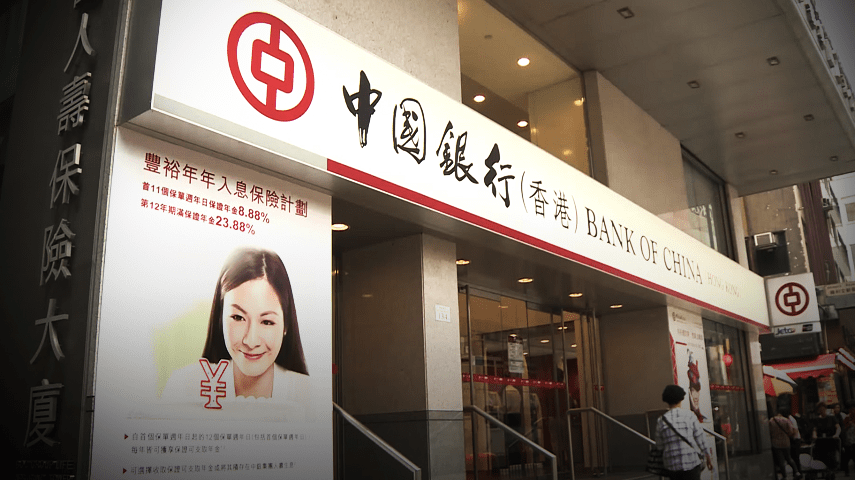Wong’s journey from Henan province to the bustling streets of Tsim Sha Tsui in Hong Kong was a testament to her determination. She arrived at the Bank of China Hong Kong (BOCHK) branch well before dawn, securing the coveted first place in a queue that had grown to nearly 60 people by the time the bank opened its doors at 9 am. The atmosphere was tense yet expectant, as everyone in line shared a common purpose – opening new accounts amid the growing economic uncertainty in mainland China.
In recent years, Hong Kong had become a haven for mainland Chinese seeking financial safety, life protection, and higher interest rates. Some individuals were investing substantial sums, equivalent to hundreds of thousands of US dollars, into savings insurance plans. This trend had gained momentum, with new business premiums from mainland Chinese visitors reaching a staggering HK$31.9 billion in the first half of 2023, a 21 percent increase compared to the same period in 2019.
Sindy, a seasoned Hong Kong insurance agent, had observed this shift in client motivations. She spoke with caution, requesting anonymity due to the sensitivity of the topic. “Mainland Chinese clients were setting up Hong Kong bank accounts before the pandemic,” she revealed. “Most had also bought local insurance policies – they needed an account to pay regular fees. But recently, the motivations behind opening an account are more about asset allocation and enhancing a sense of security.”
This shift in mindset had not gone unnoticed by Hong Kong banks. On the popular Chinese social media site Xiaohongshu, the hashtag “opening new accounts in Hong Kong” was trending, with people sharing guides on the account-opening procedures at various banks.
One significant factor driving this trend was the Chinese authorities’ restrictions on residents exchanging US stocks through online brokers since February. In May, Chinese brokers, including Futu Securities and Tiger Brokers, had withdrawn their apps from the mainland Chinese market. This prompted many like Simon, who had traveled from Shenzhen by high-speed train, to come specifically to Hong Kong to open an account. “The trend has gained popularity recently,” Simon explained in Mandarin, “as time deposit interest rates are much higher in Hong Kong than in the mainland.”
Indeed, Hong Kong banks were offering interest rates of around four percent for Hong Kong dollar time deposits, while larger sums and US dollars commanded even higher rates. In contrast, mainland China’s time deposits were offering less than three percent, making Hong Kong an attractive destination for mainland residents seeking better returns on their savings.
The surge in account openings had led to the emergence of a social media trend dubbed the “deposits special forces.” People compared interest rates offered by different banks and embarked on high-speed train journeys across provinces to open new accounts with higher interest rates. Their motivations ranged from low confidence in the Chinese stock and real estate markets to the falling interest rates on the mainland.
Amid this economic turbulence, mainland China’s property industry, accounting for approximately 30 percent of the country’s GDP, had been in crisis since the implementation of financing restrictions for developers in 2020. Exports, another key pillar of the economy, had slumped in the second quarter of 2023. Beijing had resorted to cutting interest rates multiple times to stimulate consumption, resulting in the continuous depreciation of the renminbi (RMB). In contrast, Hong Kong, with its currency pegged to the US dollar, had seen interest rates rise in line with the United States.
Chinese regulators had also urged insurance companies to lower the yield for new investment products below three percent from July 31. In Hong Kong, insurers typically provided savings insurance with around six percent guaranteed interest. This further fueled anxiety among mainland residents, as Cecilia, a Hong Kong insurance agent serving middle-class mainland professionals, noted. She revealed that since May, more clients had been inquiring about opening bank accounts in Hong Kong. “The economy is experiencing a downturn,” Cecilia explained. “The government wants people to consume instead of save, but people are not consuming because they feel insecure.”
Indeed, a myriad of factors contributed to this feeling of insecurity, including strict COVID-19 lockdowns and quarantine measures over the past three years, government crackdowns on various sectors, the recent cessation of publishing the youth unemployment rate, and the declining currency. Mainland residents found themselves torn between not wanting to buy US dollars with RMB to avoid significant losses and the belief that the RMB’s depreciation would continue, necessitating a prompt sale.
However, mainland banks imposed strict limits on foreign currency transactions, allowing nationals to buy a maximum of US$50,000 per year and carry no more than the equivalent of US$5,000 in foreign currency when traveling abroad, including to Hong Kong. This had limited the options for those looking to move their funds overseas.
While some individuals explored unconventional channels like “underground banks” to reallocate their money, these practices had recently come under scrutiny from Beijing. Chinese authorities had even arrested the founder and CEO of an immigration agency for engaging in an “illegal exchange of foreign capital.”
To meet the surging demand, some local bank branches in Hong Kong had extended their opening hours and hired additional staff. However, Andy, a Hong Kong insurance agent who preferred to use a pseudonym, pointed out that Beijing’s controls still made it challenging to transfer large sums of money to Hong Kong. “Recently, a new trend is that clients are choosing to carry cash from the mainland to Hong Kong from time to time to allocate money,” Andy revealed.
Despite the challenges, the trend of mainland Chinese residents opening bank accounts in Hong Kong appeared to be on the rise, reflecting a complex interplay of economic and geopolitical factors. As Hong Kong’s banking sector grappled with this influx, the story of Wong and the early morning queues at the BOCHK branch in Tsim Sha Tsui was emblematic of the shifting financial landscape in the region.
(Source: Irene Chan | Hong Kong Free Press)









